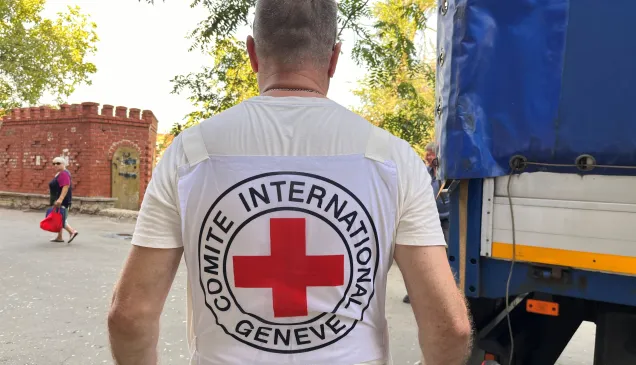A little boy shakes hands with an ICRC delegate with a broad smile on his face at a prisoner of war (PoW) camp in Geoje on June 4, 1951.
ICRC: Korean War Anniversary and the Geneva Conventions
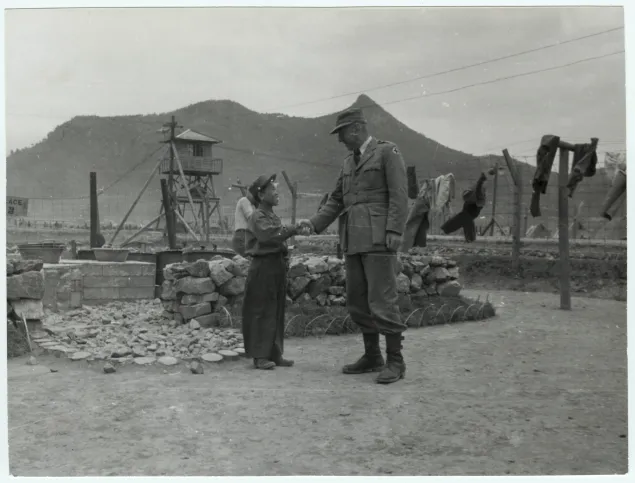
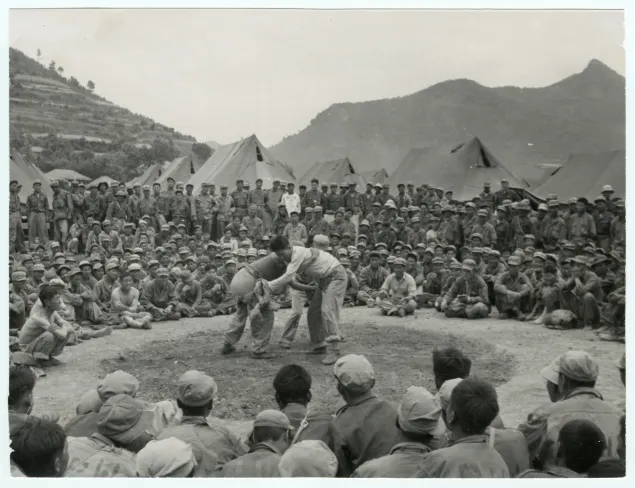
A game of ssireum (traditional Korean wrestling) set up by the support of the ICRC at the Geoje PoW camp, in June 1951.
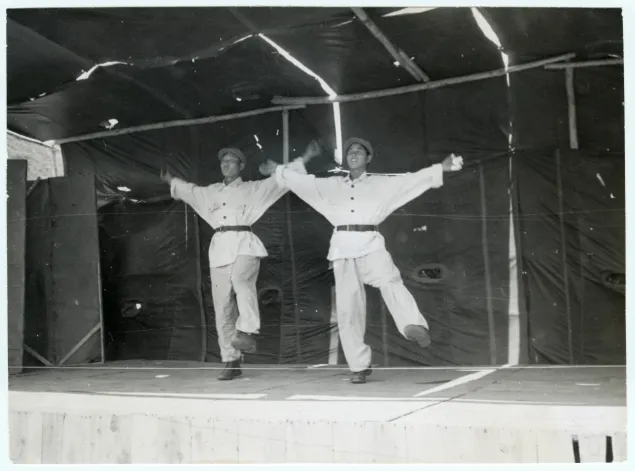
Two PoWs put on a Russian-style dance performance at the Geoje camp in June 1951.
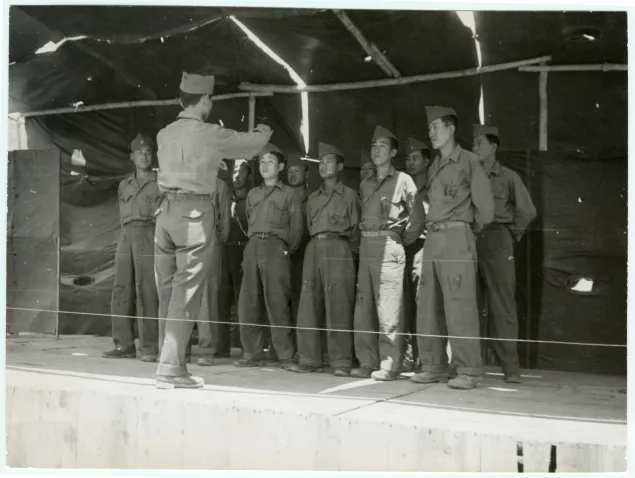
A small group of PoWs sing together at the Geoje camp in June 1951.
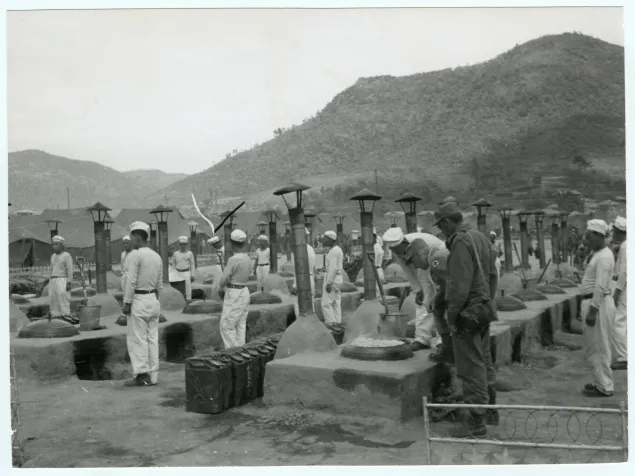
People prepare food for PoWs at the Geoje camp on 5 June 1951.
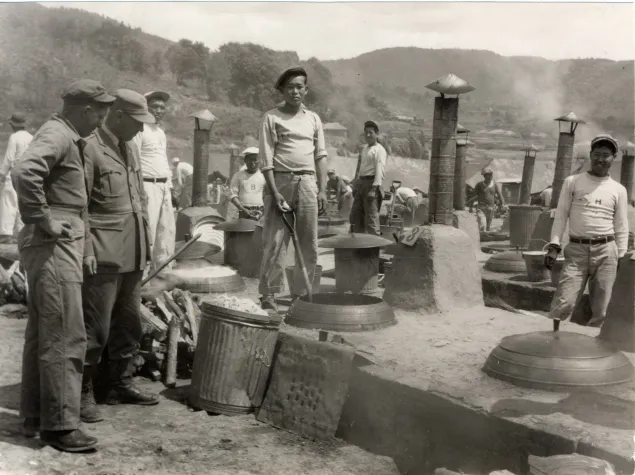
People prepare food for PoWs at the Geoje camp on 4 June 1951. Rice, peas and grains being shovelled into a GI can for distribution.
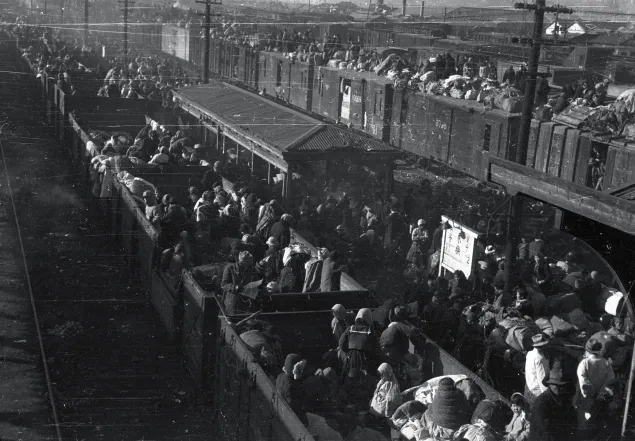
A crowd of refugees ride on trains in a photo taken on 29 December 1950.
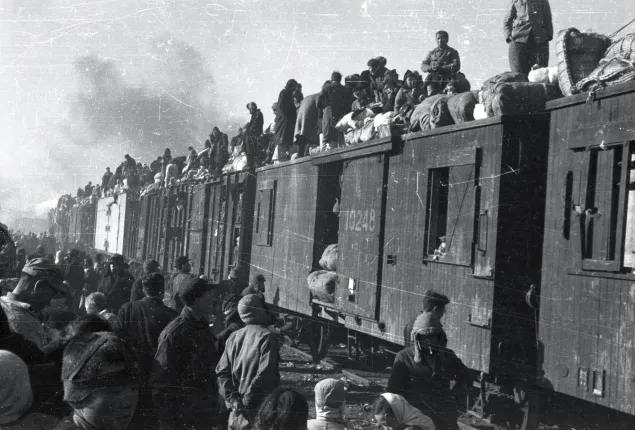
A crowd of refugees ride on trains in a photo taken on 29 December 1950.
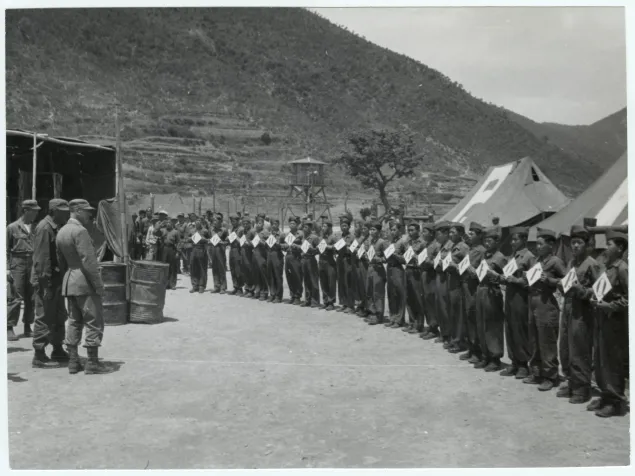
Men and women, at the PoW camp on the southernmost island of Geoje, form a line as they welcome Frederick Bieri, a delegate of the International Committee of the Red Cross (ICRC), on 5 June 1951.
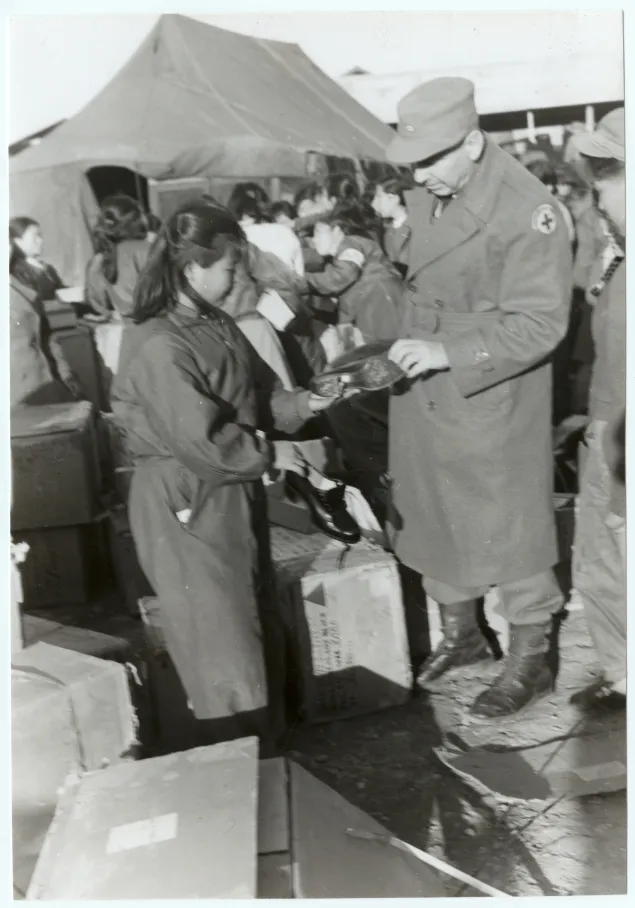
A female PoW receiving shoes from the ICRC delegate at Geoje Camps.
The Korean War set an unprecedented event where the Third Geneva Convention was enacted in a major international conflict. This set of international humanitarian laws (IHL) mandates that prisoners of war are treated humanely which include a setup of family tracing services, protection against torture and acts of violence, and given food, clothing and medical care necessary to maintain good health — and more.
It also grants the ICRC and other impartial humanitarian organisations to exercise humanitarian services on behalf of the detainees. This allows the conditions of the detention to be examined, prisoners to be visited, and supplies to be delivered for relief.
ICRC focused its activities mainly on visiting, interviewing, and reporting on the conditions of detention through a bilateral and confidential dialogue with the parties to the conflict.
The Korean War is the biggest humanitarian issues that Koreans have faced.


